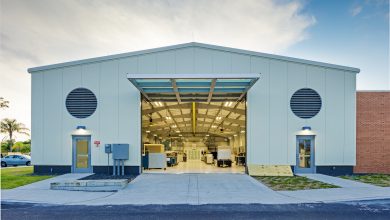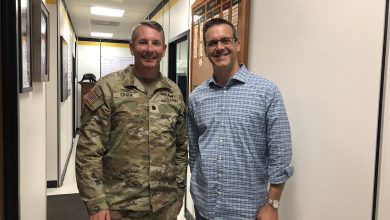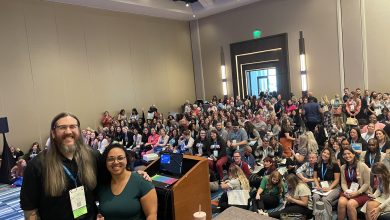Logistics Management M.S. Student Applies Coursework Directly to Employer’s COVID-19 Response
Kyle Younkin, a U.S. Airforce veteran, senior logistics analyst at AAR Corp. and student in Florida Tech’s logistics management master’s degree program, was recently tasked with leading the Department of State Worldwide Aviation Support Services logistical response to COVID-19.
Upon receiving this assignment, Younkin immediately found himself applying the principles he’d learned from his coursework to planning, procuring and providing personal protective equipment for counter-narcotic operations, diplomatic transportation and humanitarian relief missions around the world.
Read more about the experience in Kyle’s own words below.

On April 6, I was tasked to lead the Department of State Worldwide Aviation Support Services (WASS) logistical response to COVID-19; a contract held by my employer, AAR Corp.
Specifically, the team I was selected to lead coordinated the planning, procurement, and provision of personal protective equipment (PPE) in support of a contract conducting counternarcotic operations, diplomatic transportation and humanitarian relief missions around the world.
Ironically enough, I was studying stock and inventory management principles and concepts when I got the call, and the information from the coursework quickly jumped from the classroom and pages of the textbook to the shipping floor in our warehouse. I was able to directly apply what I was learning in the course and from my professor to plan and execute the most beneficial forecast methodology, a viable means to procure the assets and commodities we would need, and to implement a shipment strategy to best accommodate our customer’s downstream capabilities and needs.
Our initial stock levels were derived from a material requirements planning (MRP) method, and as a result of my studies, I realized this project would need the flexibility that MRP simply could not provide if we were to be flexible enough to respond to any hypothetical outbreak scenario at a moment’s notice. Of course, also taking into consideration that predicting demand of PPE in a pandemic was going to basically be a ‘Black Friday’ scenario anyway—you weren’t sure what the number was going to be, but it was going to be high.
Regardless, the first major concept we understood was the need to allow manufacturing capabilities to catch up to eliminate reordering in a dry market. So, the solution for us was to buy big. In doing this, we elongated our demand cycle at our operating locations and reduced the need for reorder events, a concept I brought over directly from my coursework at Florida Tech.
We immediately stopped any lower-quantity/lower-cost orders from our eight different operating locations around the globe and stood up a parallel logistics system alongside our legacy system.
Our vision (and presently, our application) has been to order large, bulk quantities of PPE to a centralized processing space, and then divide and distribute that inventory to our global sites based on real-time data from our Global Mission Center in Palm Bay, Florida, in the event we needed to meet a hypothetical outbreak scenario.
The team and I faced many daily challenges in this endeavor. However, utilizing the tools from academia I garnered from Florida Tech, and my time as a munitions airman in the U.S. Air Force, we had the ability to overcome the challenges to operate in a near ‘stock out’ environment.
My experience as a student in the M.S. logistics management program at Florida Tech has been invaluable to the success of my team and this project.
Kyle Younkin, logistics management M.S. student





